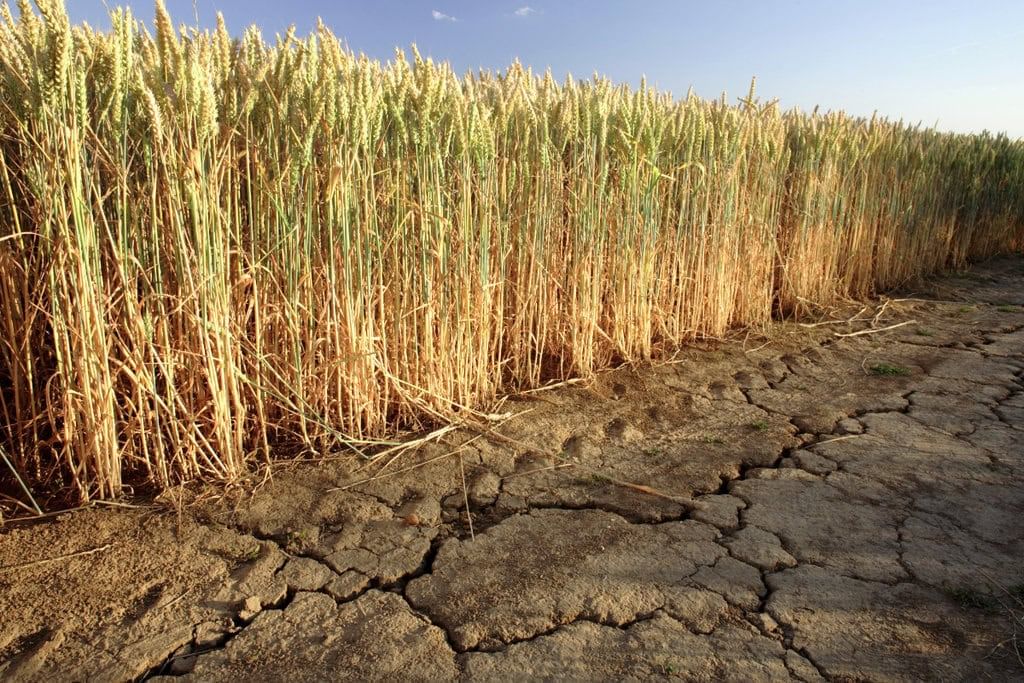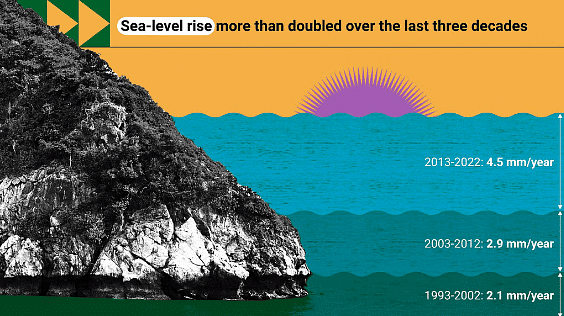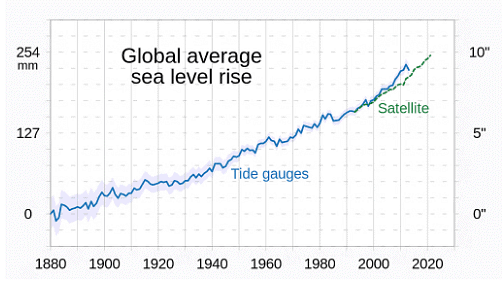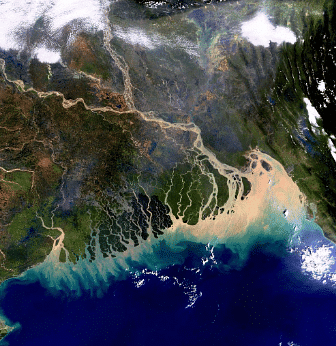Shankar IAS Summary: Impact Of Climate Change | Famous Books for UPSC Exam (Summary & Tests) PDF Download
Agriculture and Food Security
- The Third Assessment Report of the IPCC, 2001 concluded that climate change would hit the poorest countries severely in terms of reducing the agricultural products
- Crop yield would be reduced in most tropical and sub-tropical regions due to decreased water availability, and new or changed insect/pest incidence.
Impacts on Indian agriculture
- Agriculture will be adversely affected not only by an increase or decrease in the overall amounts of rainfall but also by shifts in the timing of the rainfall.
- Summer rainfall accounts for almost 70 per cent of the total annual rainfall over India and is crucial to Indian agriculture
- Semi-arid regions of western India are expected to receive higher than normal rainfall as temperatures soar, while central India will experience a decrease of between 10 and 20 per cent in winter rainfall by the 2050s
- There would be a decline in the productivity of rabi as compared to kharif season crops

Water Stress and Water Insecurity
- By 2020, between 75 and 250 million people are projected to be exposed to increased water stress due to climate change
- By 2050s, freshwater availability in Central, South, East and South-East Asia, particularly in large river basins, is projected to decrease.
(i) Impacts on water situation in India
- Available records suggest that the Gangotri glacier is retreating about 28 m per year
- A serious environmental problem has also been witnessed in the Indo-Gangetic Plain Region (IGPR)_ in the past whereby different rivers (including Kosi, Ganga, Ghaghara, Son, Indus and its tributaries and Yamuna) changed their course a number of times.
- Available statistics on water demand shows that the agriculture sector is the largest consumer of water in India
(ii) Impacts on Coastal States in India
- The coastal states of Maharashtra, Goa and Gujarat face a grave risk from the sea level rise, which could flood land (including agricultural land) and cause damage to coastal infrastructure and other property.
- Goa will be the worst hit, losing a large percentage of its total land area, including many of its famous beaches and tourist infrastructure
- The states along the coasts like Orissa will experience worse cyclones. Many species living along the coastline are also threatened.
- The coral reefs that India has in its biosphere reserves are also saline sensitive and thus the rising sea level threatens their existence too, not only the coral reefs but the phytoplankton.
Ecosystem and Biodiversity
International World Wildlife Fund (WWF) asserted that one-fifth of the world's most vulnerable natural areas may be facing a "catastrophic" loss of species.
Impacts on India’s Biodiversity
It is predicted that there will be an increase in the phenomenon of Glacial Lake: Outburst Floods (GLOFs) in the eastern and the central Himalayas, causing catastrophic flooding downstream, with serious damage.
Climate Change and Health
The warmer the climate the likelihood of its impact on human health becomes worse. It is anticipated that there will be an increase in the number of deaths due to greater frequency and severity of heat waves and other extreme weather events.
- The World Health Organization (WHO) in their studies have indicated that due to rising temperatures, malaria cases are now being/' reported for the first time from countries like Nepal and Bhutan.
- The projections by WHO and IPCC suggest that the negative effects of climate change on health are greater.
Rise in Sea Levels
As the Earth's temperature increases, so does the temperature of the ocean water. When water gets warmer, it expands, taking up more space. This expansion is known as thermal expansion, and it contributes to the overall rise in sea levels.
 Sea level rise over the years
Sea level rise over the years
Large sheets of ice, such as those in Antarctica and Greenland, are melting due to the warmer temperatures. As these ice sheets melt, the resulting water flows into the oceans, adding to the volume of water and causing sea levels to rise.
- Observations Since the 1990s: Satellite Monitoring: Satellites have been observing and measuring sea levels since the early 1990s. The data collected from these satellites show a consistent and notable increase in sea levels since 1993. This rise is occurring at a rate per year that is significantly higher than the average observed over the previous fifty years.
 Observations by satellite over the past years
Observations by satellite over the past years - IPCC's Prediction: Accelerated Ice Sheet Disintegration: The Intergovernmental Panel on Climate Change (IPCC) predicts that if the Earth's average temperature increases by 3-4 degrees Celsius, the process of ice sheet disintegration could speed up. This means that the large ice sheets could break apart more rapidly, leading to a substantial rise in sea levels.
- Consequences for People: If such a rise occurs, it could result in around 330 million people being displaced from their homes either permanently or temporarily due to flooding in low-lying areas.
- Warming Seas and Storms: Impact on Tropical Storms: The warming of the seas also has consequences for weather patterns. As sea temperatures rise, they can fuel the development of more intense tropical storms. This means that storms like hurricanes and typhoons can become stronger and more dangerous, posing increased risks to coastal regions.
Impacts on Coastal States in India
- Maharashtra, Goa, and Gujarat: The coastal states of Maharashtra, Goa, and Gujarat are at serious risk because the sea level is rising. This could lead to flooding of land, including farms, and cause damage to coastal buildings and property.
 Rise in sea level over coastal areas
Rise in sea level over coastal areas - Goa's Vulnerability: Goa is expected to be the most affected, losing a significant portion of its land, including famous beaches and tourist spots.
- Mumbai's Vulnerability: In Mumbai, places like Versova beach and other populated areas near tidal mud flats and creeks are also at risk of losing land and facing more floods due to the rising sea level.
- People Displacement: Flooding could force many people living on the coasts to leave their homes. This puts extra pressure on basic services like water, electricity, and housing in cities, contributing to fast urbanization.
- Water Scarcity: When seawater floods the land, it can mix with freshwater sources, making clean water scarcer for people living in these areas.
- Cyclone Risks in Orissa: States along the coasts, like Orissa, may experience more severe cyclones due to the changing climate. This poses a threat not only to people but also to various species living along the coastline.
- Coral Reefs and Marine Life: India's coral reefs, found in special areas called biosphere reserves, are at risk. The rising sea level is a danger to these reefs, as well as the tiny plants called phytoplankton, fish stocks, and the people who depend on them.
- Ganges Delta Flood Risks: People living in the Ganges Delta, an area near the coast, are also at risk of floods because of rising sea levels. This affects their homes and daily lives.
 Water level rise in Ganges Delta
Water level rise in Ganges Delta
|
744 videos|1444 docs|633 tests
|
FAQs on Shankar IAS Summary: Impact Of Climate Change - Famous Books for UPSC Exam (Summary & Tests)
| 1. How does climate change impact agriculture and food security in India? |  |
| 2. What are the implications of water stress and water insecurity in India due to climate change? |  |
| 3. How does climate change affect India's biodiversity and ecosystems? |  |
| 4. What are the health impacts of climate change in India? |  |
| 5. How will the rise in sea levels impact coastal states in India? |  |
















